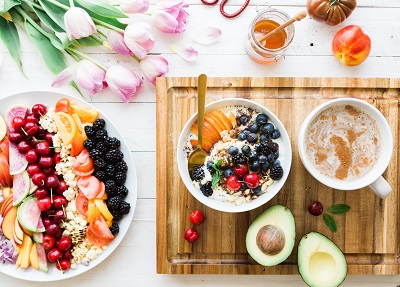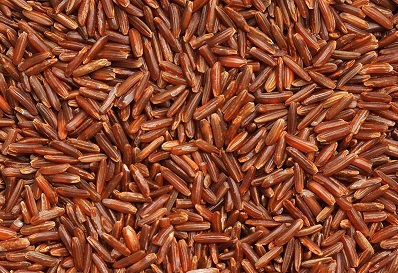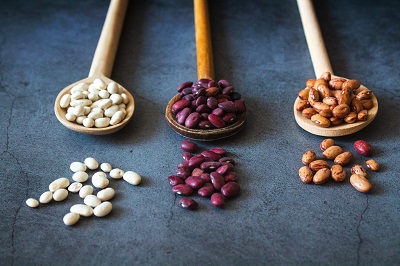Today the conversation is about raw foods vs. cooked foods. We share an article (see below), our experiences, and a few tips.
We want to come alongside you, as well, as we all continue moving toward a positive direction to support our healthy lifestyles. If there are any specific ways that we can be of assistance, please contact us through our contact form or send a verbal message through Speakpipe.
OTHER WAYS TO SUBSCRIBE AND LISTEN:








We invite you to listen and share your perspectives with us too. Send us a recorded message through Speakpipe. We may use your message in an upcoming episode, therefore, please leave your name if you would like it to be noted during the podcast. Leave an email address if you would like a personal response or feel free to use the contact form.
SHOW NOTES:
Raw Food vs. Cooked Food: A Nutrient Analysis (Article referred to in the podcast)
Please refer to these YouTube Episodes by Dr. Baxter Montgomery concerning ‘Juicing for Raw Food Benefits’:
- The Health Benefits of Juicing Part One
- Detox Me Now: Starting a Juice Feast and the Dreaded First Week
- Detox Me Now: Juice Feast Follow-up ÔÇô Nineteen Days Out
Main Photo by Brooke Lark on Unsplash
Also available on YouTube:
[00:00:00] Shonda: So I was thinking about raw food and the benefits that it has .
[00:00:04] You know, it was just on my mind to want to express to the community how important raw food and fresh foods are. I'm talking more like salads and, you know, eating fresh fruits and things like that. You know, mostly , I mean, I can't stop talking about juicing. Of course, I do like to juice. That's a raw food option.
[00:00:27] Um, but it was on my mind and then you sent me this article and it's like, oh, okay. So that's what we're talking about today. And it's raw food versus cook food. It also talks about nutrient analysis, but I don't think it goes as deep into nutrient analysis as I thought.
[00:00:45] So we'll just kind of talk about just general raw food versus cooked, and I guess our experiences, and we can talk about what the article talks about.
[00:00:57] Patryce: Excellent. Yeah, it was, it was an interesting article. And when I sent it, the fact that you were thinking about the same subject was awesome. So I haven't eaten mainly raw or a lot of raw but I definitely, even as a kid, I've always gravitated to like the raw carrots and well, like you said, most of our fruits are raw. Apples. How many kids don't like a good apple and especially with almond or peanut butter on it?
[00:01:27] Yeah. This is a very interesting article because it does talk about raw versus the cooked food diet. And, um, I think it starts off by saying that raw versus cooked the answer isn't very clear because there are many different ways of preparing food to start with. Because you can bake it, you can steam it, you can roast it, you can fry it. So. Even if you're cooking it, depending on the way you decided to cook, it can really impact your nutrition.
[00:02:00] And one thing I saw it, I don't know if it was here, but the fact that it didn't seem like boiling your vegetables is the most ideal in most situations.
[00:02:09] Shonda: Yeah, you're right. I think I did read that in this article too. And I know, you know, some people believe that you shouldn't raise the temperature of your foods above a certain point. , But yeah, and just like frying, you know, we're against frying, that's a really high temperature. So, um, you know, some believe that destroys all nutrients in the food when you fry it. So, yeah, but you know, there's a lot of things there there's differences in the way you prepare your food and some nutrients are unlocked by certain cooking methods.
[00:02:42] I know there's a difference between like cooked tomatoes versus not, you know So, you know, it has its benefits. And I think in general, and this is the way I eat. I eat in just a variety. Cooked and raw or fresh foods. And I try to get that all in a same day.
[00:03:03] I try to not eat all cooked foods for an entire single day, you know? And so we can't do that if we are eating fruit, because hopefully we're eating fresh fruit and not just, you know, apple pies and cobblers, somethings like that. So, yeah.
[00:03:23] Patryce: Yeah, I think that's a very good point. You brought up about variety.
[00:03:27] Um, I, I love to do that myself. If you're having some warm food or cooked food. Well, it's good to compliment that with some raw food. And I think most of us do that, um, have some vegetables or the salad. Those are not usually cooked or often the vegetables like carrots may not be and definitely salads are usually not cooked. And it's good to have that kind of variety. And the thing I do want to say is just the reminder that when we're eating raw foods, although they're excellent for us to make sure we thoroughly wash them.
[00:04:02] Shonda: Yeah. Yeah. That is important. Um, especially if we didn't grow them in our own gardens.
[00:04:08] Sure.
[00:04:11] Patryce: Okay. And we can Google different ways to do that because I mean, we can rinse them, but I think baking soda, there, there are different things that you can use just in your pantry to help get a more thorough washing if you want, but definitely rinse them thoroughly. And, um, it's not being finicky. It's just being careful because of diseases. And then let's be honest, the manure, you don't necessarily want to eat that. Yeah.
[00:04:40] Shonda: You don't remember that vegetable has been, so yeah, let's wash our vegetables, even if we're going to cook them, but especially if we're not going to cook them, let's wash them. Yeah. That's a good thing.
[00:04:52] So the, the article will be linked below. You can go and read about all these things: antioxidant differences and vitamin differences. It's a really short, it's like five minutes, really, I think. Um, but. I think it did summarize there's a bottom line here. And like we've talked about before, , it says, and I'm quoting "numerous research studies show that eating more plant sources of foods, vegetables, fruits, grains, nuts, and seeds, and legumes is a key strategy to improve health and decreased risk of cardiovascular disease, obesity, diabetes and cancer".
[00:05:35] Patryce: I'm glad you highlighted that. And, and, and I'm sorry, I couldn't help, but mentioning that, not only does it help her overall health part of that overall health is our oral health.
[00:05:45] And maybe we can talk about it another day, but, um, you know, our teeth, our mouth, our gums, that's a big part of our overall health and a more plant-based diet will be better for that as well.
[00:06:00] Shonda: Right? Yeah. I think we've both seen that in our lives and our visits to the dentist . Yeah, we both get good dental reports. Right. So that is something it is for your overall health. But yeah, just recently we both visited the dentist. So we just want to share that with you.
[00:06:18] So what else do we want to talk about? I know what else we can mention here before we let you guys go. We can talk about how we stir steam, our vegetables instead of using oil. So that removes frying... no longer frying vegetables. But we stir steam them and you can do that on a very low temperature. And it only takes one pan and a little bit of water.
[00:06:46] And a lot of times the lower temperature that you use, the less water you need because vegetables have their own liquids. And, they'll taste sweeter and things like that just as if you bake them. I know there are, there is an option to bake and the lower temperature that you bake the better too.
[00:07:04] It's just all about preserving nutrients in the food. So let's try to go for the lower temperatures, especially when we have more time to cook and it's more relaxing to take it at a slower pace and love your food so it can love you back.
[00:07:22] Patryce: I love that love your food so it can love you back. And to your point about the lower temperatures, it did mention in this article about dehydration.
[00:07:31] And if you have a dehydrator or you can pick one up at the garage store or find one on, on a good, for a good sale, you can do that for your kale chips or your fruits. And, um, if you don't have a dehydrator and not investing right now, like you said, just a low, low temperature in the oven should give you similar results.
[00:07:51] Right? Right. Yeah.
[00:07:53] Um, so yeah, this is just. Pretty short article. And, and like you said, the bottom line is regardless. We're not saying that there's only one way to eat your vegetables. We're just concurring that let's eat our vegetables and eat plenty of them.
[00:08:11] Shonda: Yeah. There's a variety of ways to eat vegetables and yeah.
[00:08:16] To make them more enjoyable or just enjoy a different variety. So that's what I try to do.
[00:08:23] Patryce: I do too. Yeah. And, and also for your, when you have young kids, you know, maybe your kids say, oh, I don't like carrots, but then that's because they've only had them a raw, but then maybe you steam some carrots or even bake them.
[00:08:39] And then the kids are like, oh, I really liked those. So just encouraging the parents that if you've baked your carrots and the kids are like, I don't like it. Don't despair. Try to give them to them in another form. Maybe then you give them to them crunchier by giving them raw carrots. So especially with children and when they're young, let them experience the vegetables in different forms.
[00:09:00] Shonda: Yeah. Yeah. That's good. That's another take on raw versus cooked. Yeah, that's a good one.
[00:09:05] Patryce: Another way to incorporate our raw vegetables would be smoothies. You mentioned juicing, but also smoothies and soups.
[00:09:15] There's some, some cold soups, but, uh, that's another way we can enjoy our raw veggies or just enjoying the vegetables again is through smoothies and, uh, soups.
[00:09:27] Shonda: Like for me, I notice a difference of when I don't eat raw food in a day, you know? , but I noticed a difference in energy levels.
[00:09:36] If I don't, if I skip out of raw, fresh food in a day, my energy level is much lower.
[00:09:45] Patryce: Wow, that's powerful. And I think that's good to share because we don't know who out there is, like lacking energy, big time or fatigue, big time, and they've tried everything else. And so there are people who do juice feasts and, and things like that.
[00:10:00] So maybe for that person, who's like no energy. They've tried everything they may want to try just some staight raw vegetables or some juicing, uh, to see if that does up their energy level. I think that's, that's great. And that's worth mentioning, um, because everyone's body is different and I think you've brought it up before that.
[00:10:21] Uh, you can explain it better than me, but it's live, Right?
[00:10:27] Shonda: It's living. It's still living when it comes out of my fridge. It's still living when I consume it. So it's live food, giving life. And you know, when we juice, we get a compressed amount
[00:10:43] of nutrients. Because we're taking two pound of carrots, which I can't sit here and eat two pounds of carrots but I can drink two pounds of carrots.
[00:10:50] So I know a lot of people are worried about the sugar in there and stuff like that. And that's a whole other thing and I'll just have to refer you to Dr. Montgomery. But, um, I've never had problems with that.
[00:11:01] I've noticed a difference. Some people don't. Some people do. If you're lacking energy, try juicing some vegetables and see how it affects you..
[00:11:11] Patryce: Exactly. Great. I'm glad you brought that up because uh real quick, I had an example where we were traveling somewhere and, and just could not find a lot of fresh fruits and vegetables, raw foods raw vegetables.
[00:11:25] And it was a very big difference in how I felt. After a day of not being able to eat any raw or fresh fruits and vegetables. So I think people might underestimate how nourishing that can be to your body. So again, I would just encourage you if you've tried everything else, try juicing and, or try just some raw foods for a couple days, uh, and see if you feel better.
[00:11:54] Shonda: So I really liked the bottom line of this article because, um, you know, that's the bottom line. Um, we're talking about upping our plant intake, right? And whether you do it raw or cooked, we recommend that you do both.
[00:12:16] Patryce: True. I love that bottom line.
GET STARTED WITH THE REAL FOOD AND DRINKS LIFESTYLE
Enter your name and email address below and I'll notify you weekly of podcasts, website posts, recipes, videos, and events that have been shared during the week because you won't want to miss these.



